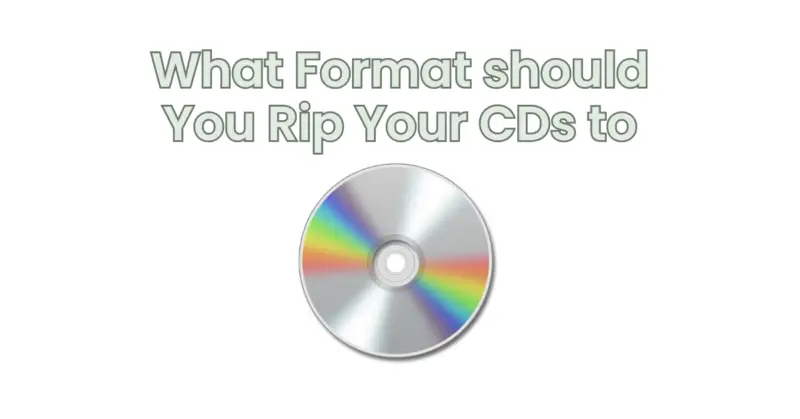When you decide to digitize your CD collection, selecting the appropriate audio format for ripping is crucial. Different formats offer varying levels of audio quality, compatibility, and file size. In this article, we will explore popular audio formats for ripping CDs and help you determine the right format for your needs.
- Lossless Formats: Lossless audio formats, such as FLAC (Free Lossless Audio Codec) and ALAC (Apple Lossless Audio Codec), provide the highest audio quality. These formats compress audio files without sacrificing any data or audio fidelity. Lossless formats are ideal if you prioritize maintaining the original CD audio quality, especially if you have high-end audio equipment or a discerning ear for audio nuances. However, lossless files tend to have larger file sizes, requiring more storage space compared to other formats.
- High-Quality Lossy Formats: Lossy audio formats, such as MP3 (MPEG-1 Audio Layer 3) and AAC (Advanced Audio Coding), compress audio files by discarding some data that is less perceptible to the human ear. These formats offer a good balance between audio quality and file size. High-quality lossy formats, encoded at bitrates of 256-320 kbps, are widely accepted for providing excellent sound reproduction on various audio devices. They offer smaller file sizes compared to lossless formats, making them suitable for portable devices and maximizing storage capacity.
- Standard Quality Lossy Formats: Lower bitrate lossy formats, such as MP3 at bitrates below 256 kbps, are still acceptable for casual listening or when storage space is a concern. While they sacrifice some audio quality compared to higher bitrates, the difference may be less noticeable in everyday listening scenarios or with lower-quality audio equipment. Standard quality lossy formats can help conserve storage space while maintaining a satisfactory listening experience.
- AAC vs. MP3: AAC and MP3 are the most common lossy audio formats. AAC is the default format for Apple devices and provides slightly better audio quality than MP3 at similar bitrates. MP3, on the other hand, offers broader compatibility across different devices and operating systems. Both formats are widely supported and offer excellent audio compression.
Factors to Consider:
When selecting the format for ripping your CDs, consider the following factors:
- Audio Quality: Determine the level of audio quality you desire. If you prioritize audio fidelity and have sufficient storage space, lossless formats like FLAC or ALAC are ideal. If you want a good balance between audio quality and file size, high-quality lossy formats like MP3 or AAC at bitrates of 256-320 kbps are recommended.
- Storage Space: Evaluate the available storage capacity on your devices. Lossless formats result in larger file sizes compared to lossy formats, so ensure you have enough storage space if you choose a lossless format.
- Device Compatibility: Consider the devices you plan to use for playing your ripped CDs. Most devices and media players support common lossy formats like MP3 and AAC, but not all devices may support lossless formats. Ensure your devices can handle the chosen format.
- Software and Services: Consider the software or services you use for managing and playing your digital music. Some platforms have format restrictions or prefer specific formats. Verify the compatibility requirements of your preferred software or services.
Conclusion:
Selecting the right audio format for ripping your CDs depends on your priorities regarding audio quality, storage space, device compatibility, and software preferences. Lossless formats like FLAC or ALAC provide the highest audio fidelity but result in larger file sizes. High-quality lossy formats like MP3 or AAC strike a good balance between audio quality and file size, making them suitable for most listening scenarios. Lower bitrate lossy formats are acceptable when storage space is a concern. Evaluate your specific needs and preferences to determine the optimal format for your CD ripping project, ensuring an enjoyable and efficient digital music experience.

